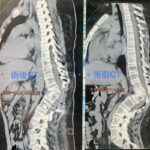Patient Miss Lin, in her 40s, suddenly experienced a drastic change in her personality. Overnight, she forgot familiar things and couldn’t even perform simple addition and subtraction as a professional accountant.
Her expression and response to others became indifferent, and she also experienced excessive sleepiness. Despite being taken to seek spiritual healing by her family, her condition did not improve. Later, her sister, who is a nurse, reminded her to visit the neurology department for an examination.
It was then discovered that she was suffering from a stroke in the thalamus, a cerebral infarction.
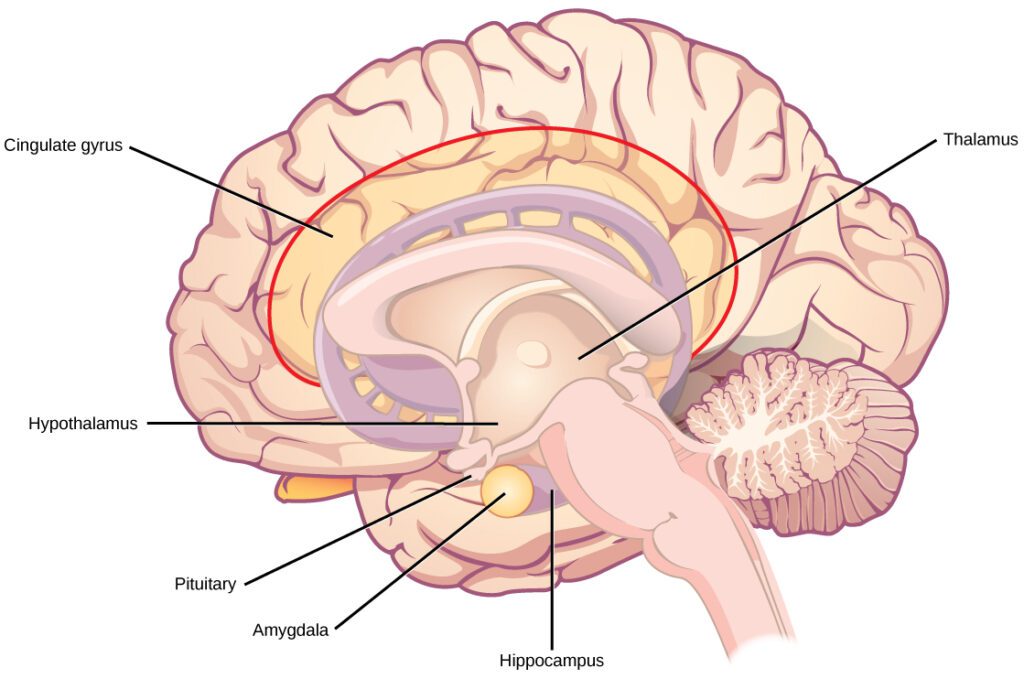
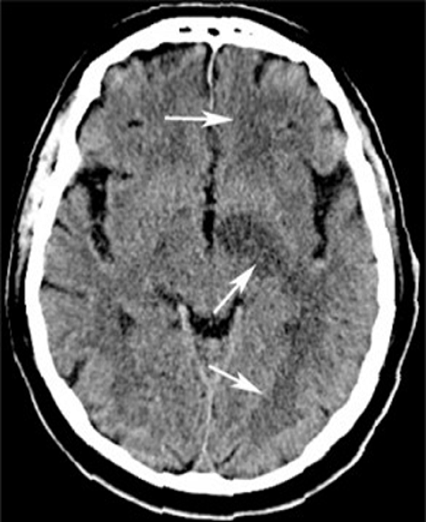
The stroke was unrelated to possession by evil spirits. However, her condition did not show significant improvement. It was only when she sought medical attention at Taipei Hospital and consulted with a rehabilitation physician that she was given a chance for improvement.
Through repeated transcranial magnetic stimulation (rTMS) therapy and rehabilitation treatment, her condition gradually returned to normal.
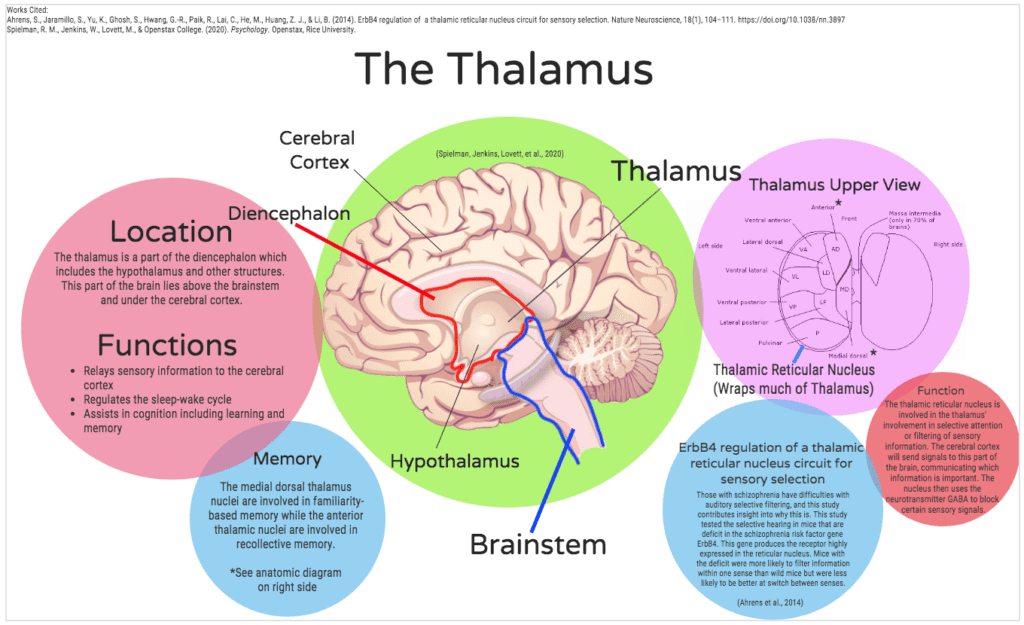
Diagnosis
The director of the rehabilitation department stated that upon first seeing Miss Lin, it was evident that her attention span was significantly reduced, and her mathematical abilities had deteriorated to the point where she couldn’t perform simple addition and subtraction.
What was even more peculiar was her inability to hide her thoughts. Whatever came to her mind, she would blurt it out without being able to control her impulses and disregarding social etiquette. Her behavior and performance did not match the professional image typically associated with accountants. Additionally, she sometimes experienced hallucinations.
Fortunately, her nurse sister had the intuition to bring her sister to the neurology department for an examination, which led to the discovery of a cerebral infarction in the thalamus.
In cases of thalamic cerebral infarction, if one side of the brain cells suffers a stroke and dies, the cells on the other side become excessively active, hindering the recovery of the affected brain functions. Delaying medical treatment could lead to more severe symptoms and difficulty in successful recovery.
Watch Ischemic Stroke – causes, symptoms, diagnosis, treatment, pathology
Watch Cerebral infarct: Gross Pathology
Therapy and Recovery
Due to the principle of rTMS, which involves applying a strong current through an induction coil, creating magnetic pulses that penetrate the cerebral cortex and using magnetic-induced electrical stimulation to directly stimulate brain neurons, it can either “facilitate” the affected area or “inhibit” the healthy side of the brain. This treatment allows for precise targeting to reconstruct brain circuits and improve symptoms.
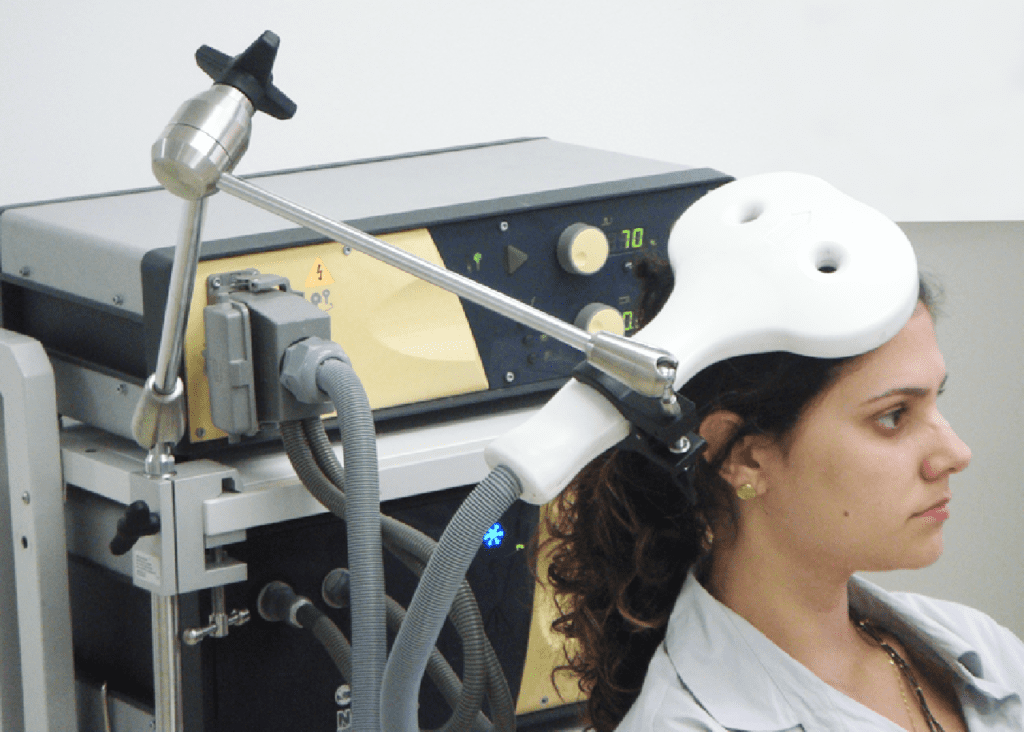
Read about Brain Stimulation Therapies by National Institute of Mental Health
Since it can treat the recovery of hand and foot movements, swallowing, language, and cognitive functions, without causing intense pain or discomfort, it is commonly used in the treatment of dementia and disabilities.
Therefore, after discussing with Miss Lin and her family, it was decided to use rTMS therapy to target cognitive and mathematical functions, combined with occupational therapy to enhance cognitive abilities, deepening the brain’s skills in learning, memory, movement, and language, thereby achieving significant results with less effort.
During the 9th treatment session, as soon as Miss Lin entered the treatment room, she proactively said to the nurse, “I’m cured!” She could also describe the feeling of her mind becoming clear in an instant. Throughout the treatment period, she could recall the names of all the friends who came to visit her and remember the intricate details of her illness.
Discover NIMH: Personalized and Targeted Brain Stimulation Therapies
Now, not only does Miss Lin have a clear memory of the onset and details of her illness, but her cognitive and mathematical abilities have greatly improved according to cognitive assessments. She can mentally perform two-digit multiplication and carry out accounting tasks, successfully returning to a normal life.
The director stated that with the advancement of technology, stroke rehabilitation is no longer limited to traditional physical, occupational, and language therapies. There are more innovative treatments available to help stroke survivors accelerate the recovery of their daily life functions. If you have relevant diseases, it is important to seek professional medical advice to tailor an appropriate rehabilitation plan and avoid delaying the condition.

